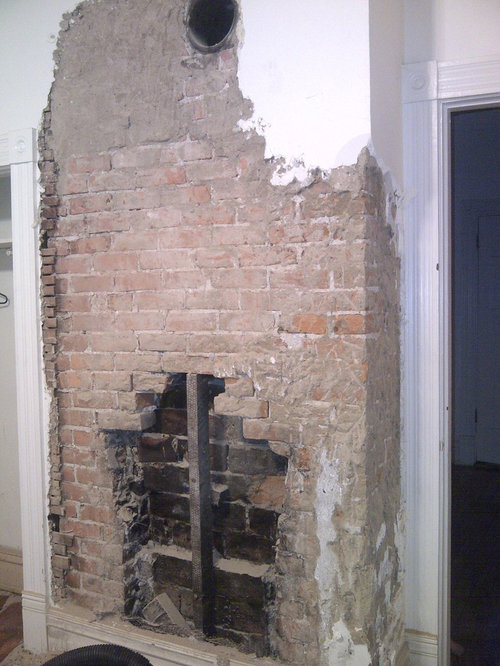I suggest putting a note in a plastic container within the fireplace pointing out that vent holes have been cut in the flue so they know to go look and rebrick them.
Bricked up fireplace no vent.
Apply cement in between each brick in the same way.
I m bricking up an unused fireplace in a house about 30 years old.
We installed a vent and when we lit a fire in the lounge smoke came out thro vent in the bedroom.
With regards to the above comment if you put an air bick in the stack externally with the fireplaces still bricked up you will have more condensation problems.
There is no need to remove the fireback from the fireplace although if a back boiler is fitted this should be removed once the plumbing has been isolated and disconnected.
As far as i know the fireplace was bricked up when it was originally removed and has never been used since.
It s worth noting that although the chimney stack was originally outside there has subsequently been an extension built on the far side so the stack is now internal for most of the way up until about 2 3rd of the way up the second storey.
Blocking up an unused fireplace after an old fire surround and hearth has been removed the hole in the chimney breast can be bricked in to tidy up the wall.
The chimbo needs vents in each room if you re open the stack or vent it externally.
Normally when i ve seen internal vents in chimneys before they ve always been in the centre which is why i was going to remove a brick from the centre and stick the vent over that.
Lay the brick on the floor of the fireplace flush with the front of the fireplace.
Press it down so the cement oozes out just a bit under the brick.
Wipe away the excess and repeat with another brick.
I mentioned this to env health officer in charge of job pointing gas fires and dangerous fumes to people asleep.
Yes you will need an air brick or an air vent.
The bricks should be flush against each other except for the thin layer of cement.
We have been told by one builder that now that the chimney breast has been bricked up we would need an air brick in it to allow ventilation and prevent damp but another builder has said that we do not need an air brick with the chimney being flued and with a cowl fastened to it and cemented in place.
There s no problem blocking up plastering a redundant fire place but you should ensure the chimney top is closed off to water ingress plus it is best practice to vent the flue space so as to avoid condensation forming.









